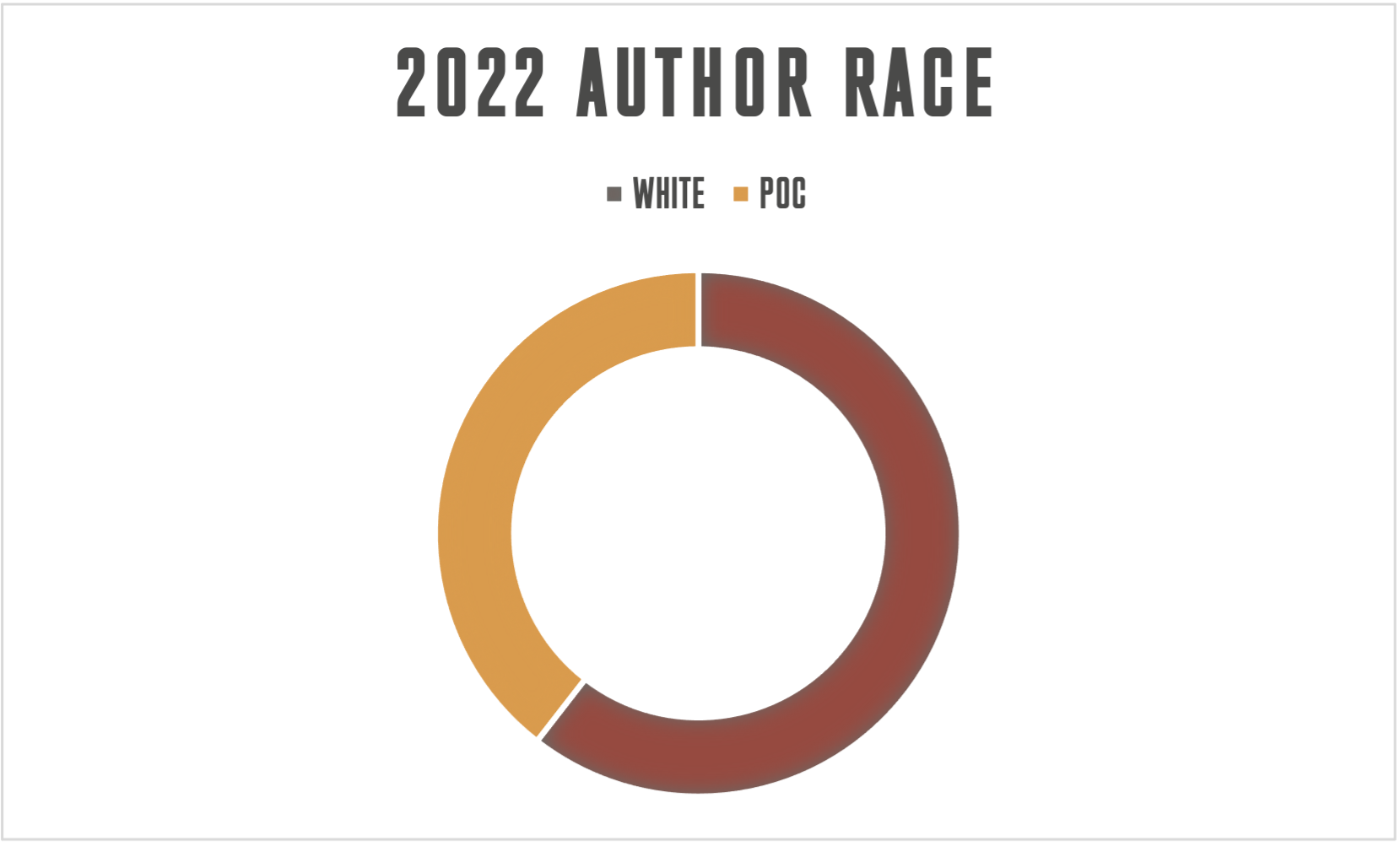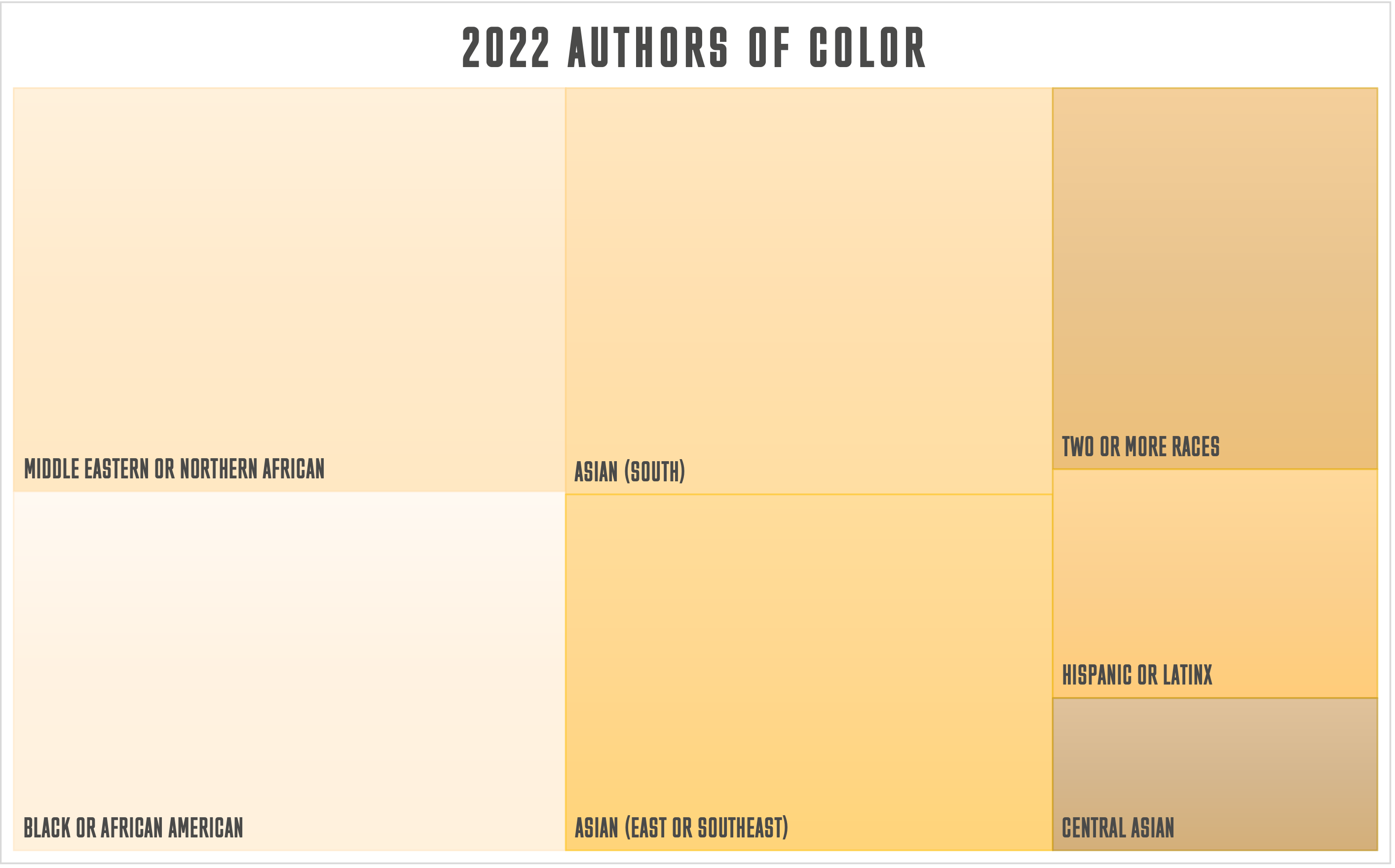Diversity
What a year of growth 2022 was!
Inkstick continues to focus on elevating historically silenced or sidelined voices. In 2022, this meant that our editorial team continued to increase our outreach to new authors with fresh perspectives, thereby growing our original content. In 2021, we published 454 pieces; 35 of those had been published elsewhere, like The Conversation, TomDispatch, and United States Institute of Peace Analysis & Commentary. However, in 2022, we published 435 pieces, of which only 18 were republished, cutting that number in half.
Inkstick’s editorial team is working to tap into the network of and build community with folks who strive to approach global security with a human-forward lens. In 2021, 31.6% of our authors were solicited, and many of them wrote for us again in 2022, when 25.4% were solicited. We continue to engage and build this network, carving out time and space to identify underrepresented voices for publication.
In 2022, we also grew our reporting exponentially. Inkstick now publishes an average of 4-5 reported pieces a month, up from 1-2 pieces a month in 2021. These pieces feature original, on-the-ground reporting from freelance journalists around the world and explore the many tangible faces of today’s pressing global security issues. This expansion of our work has allowed us to cover regions and topics we were previously unable to, including some of the most pressing issues facing Ukraine, Brazil, Argentina, Palestine, Lebanon, and more.
We’ve also grown our partnerships. Inkstick continues to remain an active member of Gender Champions in Nuclear Policy and OrgsInSolidarity. And Inkstick’s team now co-chairs the “Elevating Black and POC Voices” working group, an effort to help bring marginalized voices in national security into the mainstream.
Below are our 2022 author survey results:
Gender
In 2021, 47% of our authors identified as women. In 2022, that number increased to 54.2%.

Race
In 2021 and 2022, approximately 40% of Inkstick’s authors identified as people of color. In 2021, 59.4% of our authors identified as White (European) and in 2022, that went up to 60.2%. Our Middle Eastern authors increased from 4.6% to 7.6%. Our Black and Asian authors (South and East Asian) remained consistent from 2021. Additionally, 2.5% of our authors identified as Hispanic and Latinx and 1.7% as Central Asian, while 4.2% identified with two or more races.


Religious Identity
Our “No Religion” category increased from 41.1% to 43.2%, as did our Muslim (13.6% from 8.6% in 2021) and Jewish (8.5% from 7.4% in 2021) categories. Our Christian category decreased from 28.6% in 2021 to 23.7% in 2022.
Sexual Identity
In 2021, 17.1% of our authors identified as LGBTQ+, which increased to 22.9% in 2022. In 2021, 5.1% preferred not to answer this question, which decreased to 3.4% in 2022, highlighting one way in which Inkstick is becoming a safe space for queer authors.
First-Generation
We asked all of our authors if they identified as first-generation college students or as first or second-generation immigrants. First-generation college students went down from 17.7% in 2021 to 16.9% in 2022, while first or second-generation immigrants went up from 28.6% in 2021 to 32.2%.
At Inkstick, we continue to believe that hope is logical, global is local, and human security is national security. As we grow, we are grateful to all of you for pitching, writing, reading, and supporting us.
Look out for our 2023 author audit next year.













